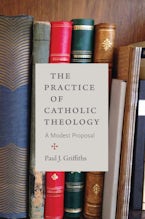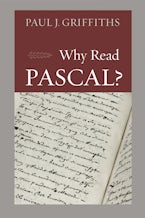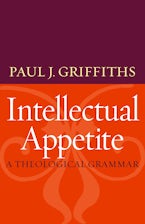Preparing your PDF for download...
There was a problem with your download, please contact the server administrator.
In The Practice of Catholic Theology: A Modest Proposal, Paul J. Griffiths has written a how-to book for Catholic theologians that will both instruct beginners and challenge long-time practitioners to sharpen their understanding of their craft. He defines Catholic theology as the practice of thinking, speaking, and writing about the God of Christian confession; so understood, it's something that anyone can learn to do. Personal sanctity is not required, but as with any other practice, practitioners of this beautiful and elevated thought-performance need to know some things and to develop some skills in order to be able to perform it.
This book lays out, clearly and in detail, what the relevant body of knowledge is and how to find access to it; it does that by describing the "Catholic archive" in all its variety (scriptural, conciliar, magisterial broadly and narrowly, liturgical, canon-legal, speculative), and by analyzing the authoritative weight of the various components of the archive. It shows the difference between dogmatical and speculative theology, both by example and analysis. It also gives detailed instruction in the development of the theologian's particular skills: argument, synthesis, intellectual imagination, thought-experiment, exegesis, and so on. And it describes, with particular recommendations, the essential components of the theologian's working library, and how they ought to be used.
Paul J. Griffiths is Warren Professor of Catholic Theology, Duke Divinity School.
"Griffiths's vision for Catholic theology is provocative, clear, interesting, and anything but modest."
~Meghan Sullivan, Univ Notre Dame, Commonweal Magazine
"It is a clear, paced, practical guide for beginning the study of theology… would highly recommend this text to any student beginning the study of theology. It should be in every high school, college, or graduate school that offers the subject in its curriculum. It should be a required text in any beginning class on the subject... The book should make anyone appreciate the study of theology as a subject, as a science, and as an art."
~Mary Kelleher-Fitz, Catholic Library World
"Griffiths describes this slender volume as a how-to work, and he does not disappoint… makes for a compelling read sure to generate fruitful (and intense) discussion… an excellent resource for introductory graduate courses and for theologians and libraries."
~Robert J. Ryan, CUA, Horizons: The Journal of the College Theology Society
"...raises epistemological questions about the role of faith in theology that demand a thoughtful and nuanced response."
~Donna Teevan, Seattle University, Theological Studies
"0"



